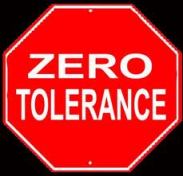 Due to the space limitations of a text message, please note that it is particularly important to read carefully, pay close attention to the context of the question, and use the answers as a springboard for further study.
Due to the space limitations of a text message, please note that it is particularly important to read carefully, pay close attention to the context of the question, and use the answers as a springboard for further study.
If you would like my phone number to submit questions, please leave a comment and I will send it to you.
Q: Can i make an “oseh maaseh b’raishis” if i see amazing fish and coral reefs? What if I am underwater when I see them and I have a snorkel in my mouth. Can i just think the bracha?
A: The bracha of “oseh ma’aseh bereshit” is said upon seeing non-living natural phenomena. Upon seeing beautiful or otherwise exceptional living phenomena (including plants) the bracha “she’chacha lo ba’olamo” is recited. Although many are unaware of or hesitant to recite this blessing it is nevertheless entirely appropriate if one is impressed by an exceptional sight (Sefer Penini Halacha). Tropical fish and coral reefs (as long as they are strikingly beautiful or otherwise exceptional) would definitely fit into that category. Thinking the bracha while snorkeling is meritorious even though it is not considered a bona fide bracha recitation (M.B. 185:2 & 206:13 since although brachot only ideally have to be recited audibly, they at least have to be recited orally at some level whenever possible).
Advanced:
When these two limitations do not apply (M.B. ibid.), Shulchan Aruch writes that it should be said “on any bracha that one hears, in any place” (O.C. 124:5, based on Tur), Iggrot Moshe (ibid.) records that common practice is not to recite it on individuals’ personal brachot (since it’s not obligatory), and the Vilna Gaon objected to its recitation in the context of any bracha (since he believed that it interferes with the necessity for Amen to refer to the entire text of the bracha – [Tos. Ma’aseh Rav 14, Keter Rosh 26), and for other reasons as well (see Ma’aseh Rav 43 regarding during the chazan’s repetition and Peulat Sachir 1)].





